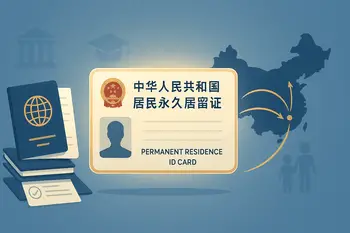
Understanding the intricacies of Chinese cultural taboos is essential for fostering strong relationships, whether personal or professional.
Rooted in thousands of years of history, Chinese traditions emphasize respect, harmony, and symbolism.
Missteps in these areas can unintentionally offend or disrupt social balance.
This guide explores the most significant taboos, their cultural origins, and practical advice for navigating them.
1. Numbers and Their Superstitions
The Dreaded Number 4
In Chinese culture, the number 4 (四, sì) is considered highly inauspicious because it sounds similar to the word for death (死, sǐ).
This superstition is so pervasive that many buildings skip the fourth floor entirely, labeling it as “3A” instead.
Similarly, people avoid using the number 4 in phone numbers, license plates, or important events like weddings.
Lucky Numbers
Conversely, certain numbers are seen as auspicious.
The number 8 (八, bā) is especially valued because it sounds like the word for “wealth” or “prosperity” (发, fā).
For example, businesses often pay a premium for phone numbers or addresses containing the number 8.
The number 6 (六, liù), symbolizing smoothness and success, is also considered lucky.
For more on Chinese numerology, visit China Highlights: Lucky and Unlucky Numbers.
2. Gift-Giving Faux Pas
Gift-giving is an integral part of Chinese culture, but certain items carry negative connotations.
Avoid these gifts to prevent unintentional offense:
- Clocks: Giving a clock (送钟, sòng zhōng) sounds like “attending a funeral ritual” (送终, sòng zhōng), symbolizing the end of life.
- Sharp Objects: Knives or scissors symbolize cutting off a relationship.
- White or Black Packaging: These colors are associated with mourning and funerals. Instead, opt for red or gold, which signify luck and prosperity.
- Umbrellas: The word for umbrella (伞, sǎn) sounds like “separation,” making it an unsuitable gift.
When in doubt, consider giving fruit baskets, tea, or high-quality alcohol, which are generally well-received.
Learn more about Chinese gift-giving etiquette here.
3. Dining Etiquette
Chopsticks Do’s and Don’ts
Chopsticks are an essential part of Chinese dining culture, but improper use can offend:
- Never stick chopsticks upright in a bowl of rice, as this resembles incense at a gravesite, symbolizing death.
- Avoid pointing chopsticks at others, as it is considered rude and confrontational.
- Do not use chopsticks to gesture or play with food.
Serving Tea
When pouring tea, always fill others’ cups before your own, especially for elders or superiors.
This gesture demonstrates respect and humility.
For a detailed guide on Chinese dining etiquette, visit The Spruce: Chinese Table Manners.
4. Symbolism in Language
Homophones with Negative Meanings
Chinese is rich in homophones, and seemingly innocuous words can carry unintended meanings.
For example:
- Avoid mentioning the word “break” (破, pò) during important events, as it suggests bad luck.
- Refrain from using terms like “empty” (空, kōng) or “loss” (亏, kuī) during business discussions, as they imply failure.
Avoiding Direct Criticism
Direct criticism or confrontation is frowned upon in Chinese culture.
Instead, use indirect language and a harmonious tone to address sensitive topics.
For example, instead of saying, “This is wrong,” you might say, “Perhaps we could consider another approach.”
5. Colors and Their Implications
White and Black
White and black are associated with mourning and funerals, making them inappropriate for festive occasions.
For example, avoid wearing white or black to weddings or Lunar New Year celebrations.
Red: A Color of Celebration
Red symbolizes happiness, luck, and vitality.
It is widely used in weddings, New Year celebrations, and other joyous events.
When in doubt, red is a safe and auspicious choice.
6. Taboos in Personal Interactions
Touching the Head
The head is considered sacred, especially for children.
Touching someone’s head can be interpreted as disrespectful or intrusive.
Pointing with a Finger
Pointing with a single finger is seen as impolite.
Use an open hand or a nod to indicate direction or attention.
Avoiding Overfamiliarity
Maintaining a respectful distance and addressing people with their appropriate titles is essential, particularly in formal settings.
For example, use “Mr.” or “Ms.” followed by their surname unless invited to use their first name.
7. Business and Professional Etiquette
Punctuality Is Key
Arriving late to a meeting is seen as disrespectful and unprofessional.
Always plan to arrive early, especially when dealing with business associates.
Exchanging Business Cards
When exchanging business cards, use both hands to present and receive them.
Take a moment to read the card carefully before putting it away, showing respect for the individual’s identity and position.
For more on Chinese business etiquette, visit Harvard Business Review: Understanding Chinese Business Culture.
8. Religious and Festive Considerations
Respect for Ancestors
Ancestor worship is a cornerstone of Chinese spirituality.
Activities or remarks that diminish its significance can offend deeply.
For example, avoid making jokes about ancestral altars or rituals.
Taboos During Festivals
During Lunar New Year, avoid mentioning death, breaking objects, or sweeping floors, as these actions are thought to dispel good luck.
Instead, focus on positive language and actions that symbolize prosperity and happiness.
9. Photography and Social Media Sensitivity
Respecting Privacy
Taking photos without permission, particularly at temples, funerals, or private events, is considered intrusive.
Always ask for consent before taking pictures.
Avoiding Negative Symbolism
When posting images, avoid elements like broken mirrors, wilting flowers, or empty chairs, as these can convey misfortune or loneliness.
Practical Tips for Navigating Taboos
- Educate Yourself: Take time to learn about Chinese culture and traditions before engaging in social or professional interactions.
- Observe and Adapt: Pay attention to how locals behave and follow their lead.
- Apologize Gracefully: If you accidentally break a taboo, offer a sincere apology and show your willingness to learn.
Conclusion
Understanding and respecting Chinese cultural taboos is essential for building strong, harmonious relationships.
By being mindful of these practices, you demonstrate cultural sensitivity and foster mutual respect.
Whether you’re visiting China for business or leisure, adhering to these principles will help you navigate social and professional interactions with confidence.
For further reading, explore:
By embracing these cultural nuances, you can deepen your understanding of Chinese traditions and create meaningful connections.


